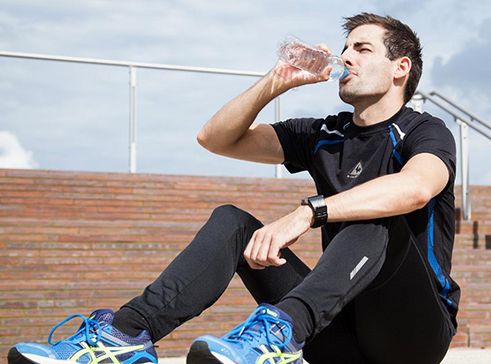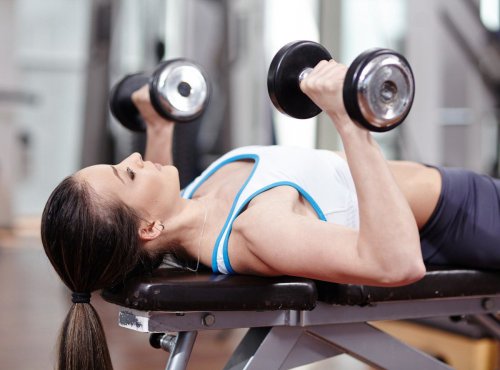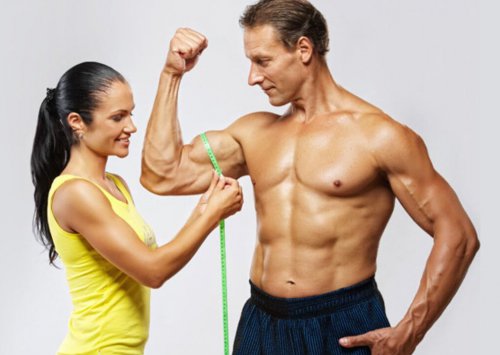
Water plays a role in the body's heat, fat, and carbohydrate metabolism. All of these processes are closely linked to maintaining good physical fitness. Let's explore what water balance is and how it impacts the quality of your workouts and your health.
Chances are, you've experienced a situation where you felt more fatigued than usual during a workout, yet the effort you expended was minimal. It may be due to your body's water balance, or more precisely, an imbalance.
Let's figure out what water balance is and how it affects the quality of your workouts and your overall health.
The total amount of fluid in the body accounts for approximately 65% of body weight. Water plays a role in the body's chemical and metabolic processes. It also contains nutrients consumed through food. Water plays a role in the body's heat, fat, and carbohydrate metabolism. All of these processes are closely linked to maintaining good physical fitness. Water dissolves oxygen and carbon dioxide, so even breathing is facilitated by the presence of moisture in our bodies.
However, water loss and dehydration negatively impact the functioning of individual organs, various systems, and the entire body. A lack of water can lead to a decrease in blood volume and oxygen starvation.
Our body requires 30 ml of water per kg of body weight per day. For example, a person weighing 85 kg needs to drink 2.5 liters of water per day. However, you shouldn't exceed this amount.
We invite you to find out what happens to the human body during training without water.
1. The effectiveness of training decreases
Dutch experts have concluded that if a person loses just 5% of their body fluids, their performance decreases by 30%. If you want to stay ahead, don't forget to drink water. However, losing more than 10% of your body fluids can have more serious consequences. This will negatively impact not only the quality of your workouts but also your overall health.
Swiss athlete Gabriela Andersen found herself in a similar situation. During the 1984 Olympic marathon, she barely drank any water. As a result, she suffered severe heatstroke. By the last kilometer, she couldn't even walk. Her legs wouldn't obey her, and she became disoriented.
Overweight people are at a high risk. They need to be especially careful about maintaining their hydration levels and drinking plenty of water both during exercise and at other times.
2. Increased appetite
The receptors in our brain responsible for thirst and hunger are located next to each other. And we often confuse these two sensations.
If you feel hungry after a workout, it might just be thirst. So, before you eat anything, drink a glass of water. If you no longer feel hungry, it was a sign of dehydration.
3. The load on the heart increases
A lack of hydration causes blood vessels to constrict—the body tries to conserve water reserves this way, and the blood becomes thick. This puts enormous strain on the heart, trying to push thick fluid through narrow capillaries. The result is high blood pressure, tachycardia, and shortness of breath. And that's not all. Other unpleasant consequences can occur. The recommended water intake during physical activity is 150-200 ml every 15-20 minutes.
4. Muscle pain occurs
Muscle pain is common with any new exercise. However, if dehydration occurs, this pain can be a constant companion. During physical activity, microtrauma occurs in tissues, which is what causes the pain.
To avoid this, it's essential to promote muscle recovery. Water facilitates the absorption of proteins and carbohydrates, which nourish muscle fibers. Therefore, recovery is impossible without a proper hydration regimen.
5. Joint pain
The fact is that the fluid that lubricates joints becomes thicker and more viscous when the body is dehydrated. Joints begin to withstand stress poorly, resulting in injury and pain.
6. Swelling appears
When dehydrated, our bodies store fluid. This can also cause dark circles under the eyes. To prevent this, it's important to drink water not only after exercise but also during training. This is especially important during prolonged periods of exercise or during training in hot and humid climates.
7. Cramps in the limbs are felt
Cramps are caused by a magnesium imbalance, which is essential for muscle contraction. The most reliable way to compensate for a magnesium deficiency (as well as calcium, fluoride, and sodium, which are equally important for athletes) is to drink still mineral water, which you can enrich with all the beneficial microelements yourself using a filter with a mineralizer.
To avoid all of the above-mentioned unpleasant symptoms and problems, it is necessary to regularly drink clean water, including during physical activity.






